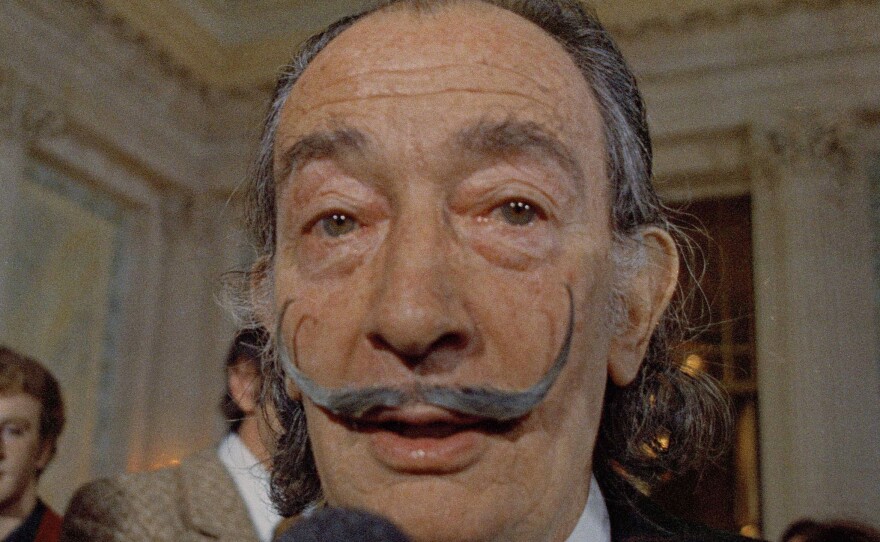The results are in for the biological tests of Salvador Dalí and the Spanish woman who claimed to be his daughter — and they show that the surrealist painter was not her father, according to the Gala-Salvador Dalí Foundation.
Earlier this summer a judge in Madrid ordered that Dalí be exhumed and a DNA test be performed on his bones, after María Pilar Abel Martínez filed a paternity suit claiming her mother had had a secret affair with the artist while working as a maid in the 1950s.
But on Wednesday, the foundation said in a statement that the results showed "the exclusion of Salvador Dalí as the biological father of María Pilar Abel Martínez."
If paternity had been confirmed, Abel would have been entitled to up to a quarter of his estate, reports The Associated Press.
Abel, born in 1956, has been making claims about Dalí being her father since at least 2007.
NPR's Lauren Frayer said Abel is "working as a tarot card reader — and claims to resemble Dalí: 'The only thing missing is the mustache,' she says," as The Two-Way reported in June.
The foundation, which manages Dalí's estate, said the court's finding came as no surprise, "since at no time has there been any evidence of the veracity of an alleged paternity."
Contacted by the Spanish newspaper El País, Abel said neither she nor her lawyer had been given the results yet. "I do not hide, whatever the result: positive, negative or invalid, I will give a press conference with everyone to explain it."
In life the eccentric Dalí never failed to shock, and that was the case when his body was pulled from its tomb in July. After nearly 30 years, Dalí's mustache remained perfectly intact. It was "a miracle," Narcís Bardalet, the forensic doctor who embalmed Dalí in 1989 and attended the exhumation, said, as The Two-Way reported.
"The mustache preserved its classic 10-past-10 position," Lluís Peñuelas, secretary-general of the Dalí Foundation, told El País.
The foundation says Dalí's remains will be returned shortly to his resting place at the Dalí Theatre-Museum in Figueres, Spain.
In its statement, the foundation adds that it "is pleased that this report puts an end to an absurd and artificial controversy."
Copyright 2017 NPR. To see more, visit http://www.npr.org/.






